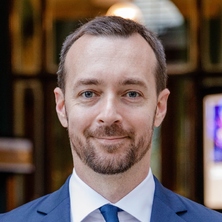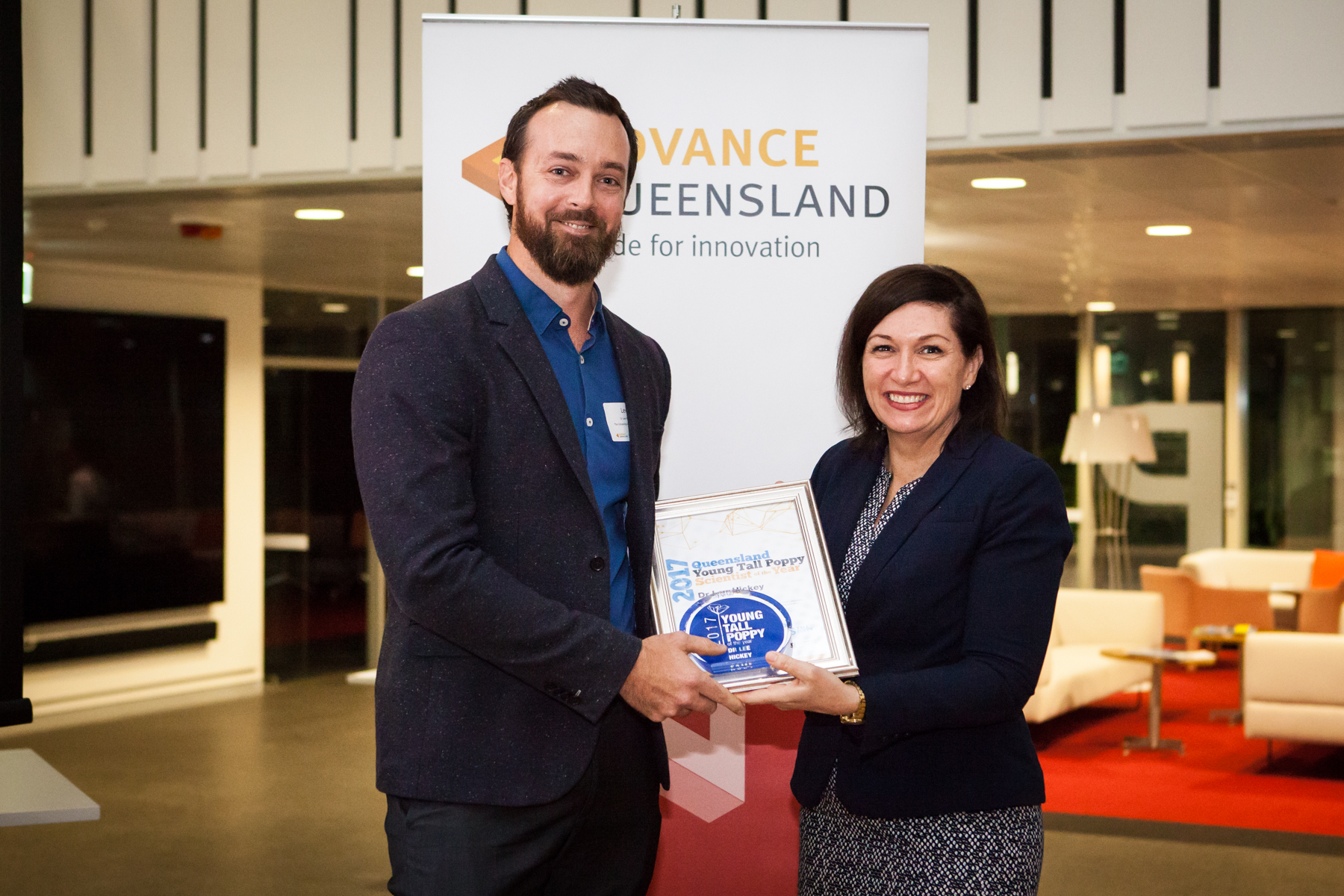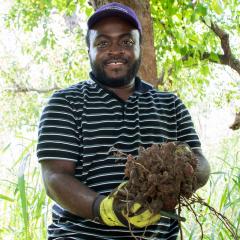A young Queensland scientist who has pioneered a way of fast-tracking the growth of genetically improved ‘super wheat’, which is more resilient to drought, pests and weeds, has been recognised as the 2017 Queensland Young Tall Poppy Scientist of the Year.
Speaking at the science celebration tonight (Friday), Science Minister Leeanne Enoch congratulated Dr Lee Hickey from the University of Queensland on the award and applauded the other 11 Queensland finalists.

“Each year, I’m amazed at the groundbreaking research being carried out by Queensland universities and our world-class institutes like QIMR Berghofer Medical Research Institute, as well as organisations like CSIRO,” Ms Enoch said.
“Our talented young Queensland scientists are working on innovations that will help to increase our competitiveness in world markets, address environmental issues and improve the health and well-being of Queenslanders.
“The Palaszczuk Government’s $420 million whole-of-government Advance Queensland initiative continues to support the amazing science taking place right here in our great state by providing a number of grant programs for researchers and science communicators,” she said.
Dr Hickey is a senior research fellow at UQ and over the past nine years has played a key role in developing ‘speed breeding’ technology, which has produced up to six generations of wheat and barley each year.
His research is solving a major problem for farmers in Queensland and New South Wales who regularly experience crop production losses due to weather damage, pests and weeds.
Dr Hickey was awarded $5000 to support and promote his cutting-edge research in genetics and plant breeding.

He will participate in education and community outreach programs to inspire school students and the broader community about the possibilities of science, including visits to schools, educational seminars, workshops, public talks and other activities.
The Tall Poppy program aligns with the Advance Queensland innovation initiative through developing and retaining word-class researchers in Queensland and increasing the number of young people studying science, technology, engineering and maths in schools and universities.
The annual Young Tall Poppy Science Celebration is hosted by the Australian Institute of Policy and Science (AIPS) in partnership with the Office of the Queensland Chief Scientist to coincide with National Science Week.
AIPS Tall Poppy Campaign General Manager Camille Thomson said the awards showcase young rising stars who are leading cutting-edge research in fields such as melanoma genetics, robotics, health economics and coastal restoration.
“The Tall Poppy Awards are fundamental to giving the public a clear understanding of the world-class research that is being undertaken at universities and other research institutions,” Ms Thomson said.
“I’d like to congratulate all the young Queensland scientists recognised at the 2017 Young Tall Poppy Science Awards for their significant research and for sharing their passion for science with Queenslanders.”
For more information about the 2017 Queensland Young Tall Poppy Science Award, visit http://www.aips.net.au/tall-poppies/qld-tall-poppies/
Source: Queensland Government



